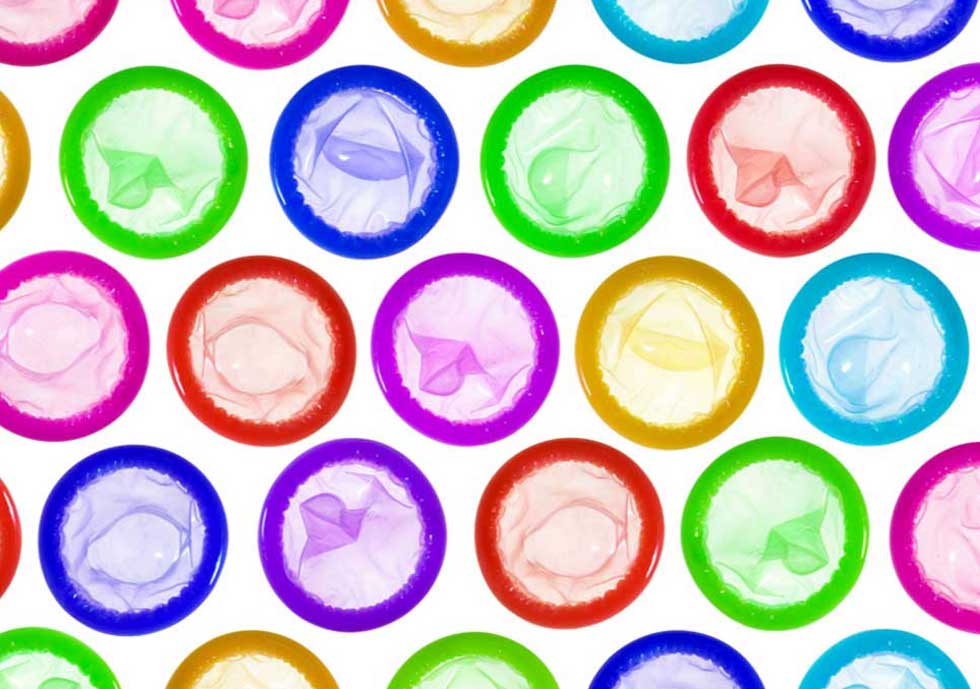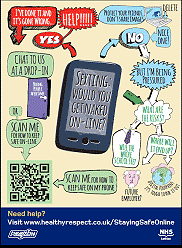SEXTING
What are the risks?
What does the law say?
So why do people do it?
Webcams
Tips for staying safe
Getting help: ZIPIT
What is it?
When someone talks about 'sexting' they usually mean sending a nude (naked) photo of themselves to someone through their mobile phone. Because of the rise in the use of smart phones and social media, the act of sexting is similar to and also talked about as 'cyber sex'. Although this is generally what sexting means, sexting someone can also be considered as:
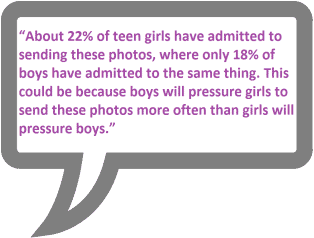
- Sending a text or message with sexual content, sexual or nude videos or photos ('dirty pics' and 'dirty vids')
- Sending sexual texts / messages / pictures or videos via social media, instant messenger, or social communication apps like Whatsapp, Facebook, Omegle, Snapchat (for more information about social media and sex in the media click here?)
- Using a video chat or webcam online to perform sexual or nude acts
What are the risks?
The person you send the picture or message to could be your boyfriend, girlfriend, someone you fancy, someone from school or work or someone you met online...anybody. Although you want to trust someone, it is difficult to know who to trust with so many ways to send and save pictures and messages.
You cannot control who sees it or where it goes! The problem with sending anything by text or online is that, once the other person has received the content of your message you no longer have control over who sees it and how far it travels.
It can be stolen or copied without the person you sent it to knowing. Even if the person you sent it to promises not to show anyone, their computer or mobile can be stolen, hacked into or be discovered by accident and your privacy invaded.
Quite often immaturity, peer pressure, hateful behaviour or even just a mistake or misjudgement can mean that your trust and privacy can be exploited.
You might be bullied, harassed or humiliated if the picture is spread to somewhere like your family, school, workplace, friend group, social and sports clubs -
Unfortunately, this does happen and although you do not deserve to be bullied or embarrassed for something you cannot control, a lot of people will not understand your situation or how your trust has been abused. Shaming someone publicly and the use of sexually explicit pictures online to embarrass, manipulate or abuse young people is a serious problem and is very difficult to stop.
What does the law say?
The Communications Act 2003, sending indecent or obscene images online or over the phone is against the law, no matter how old you are.
- The Sexual Offences Act (Scotland) 2009 also protects against the sending, making or receiving sexual images or messages without consent or to harm another person. You can read more about sexual coercion here?
- It is illegal for a young person under the age of sixteen to create, send, have or pass on 'dirty pictures' or videos. Doing so could result in anyone who is involved being prosecuted for making or having child abuse images, even if it's your picture and you give permission!
Someone who gets a hold of your photo could use it to blackmail, manipulate and control you. This is against the law and is not your fault and you can seek help by contacting CEOP or ChildLine.
So why do people do it?
Nowadays, for a lot of people, sexting seems like one of the 'normal' ways to flirt and be intimate with someone they fancy or are in a relationship with. It can give a person a rush of excitement and a feeling of affection, intimacy or trust with another person. It can make a person feel good about themselves and in control of their body and how it looks.
Many people feel like they need to send nude photos or sexual texts to please or impress their boyfriend or girlfriend. Some people feel pressured from their boyfriend/girlfriend or friends and other people who are sexting to join in with the trend or 'do what everyone else is doing'. This makes the risks seem less serious.
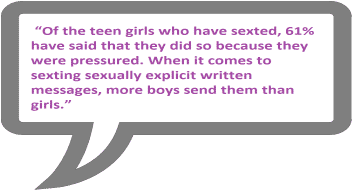 Often young people use sexting as a way to prove themselves or their sexuality or sexual identity and be proud of how they look or who they are. Sometimes they even spread the content themselves to do so. Although everyone has the right to express themselves and be proud of who they are, sending sexually explicit content is still illegal and not a safe way to do this. If a young person is struggling with their sexuality and identity they can get help and advice LGBT Youth. Click here for more information about LGBT Youth.
Often young people use sexting as a way to prove themselves or their sexuality or sexual identity and be proud of how they look or who they are. Sometimes they even spread the content themselves to do so. Although everyone has the right to express themselves and be proud of who they are, sending sexually explicit content is still illegal and not a safe way to do this. If a young person is struggling with their sexuality and identity they can get help and advice LGBT Youth. Click here for more information about LGBT Youth.
People will think "ah, it'll never happen to me, right?", but sexting can be dangerous, and gone wrong, affect your options and choices not only in the near future, but possibly throughout your life.
Webcams
Webcams, which can allow you to chat live through a video stream online, are great for chatting to friends and other people online face to face no matter how far away they are. Sites like Omegle and apps like Skype and the Apple iPhone 'factime' app are popular amongst young people.
There are risks though! Although chatting over webcam can feel fun, safe and private, sometimes it isn't safe and it is never completely private! The growth of technology means that even a private video chat between two people can be recorded and, like a 'sext', can be used to blackmail and exploit a person.
Be aware of whom you are talking to and even though it feels fun at the time; remember the consequences of a private chat or video becoming public!
For more advice on internet safety, visit: www.thinkuknow.co.uk
Tips for staying safe:
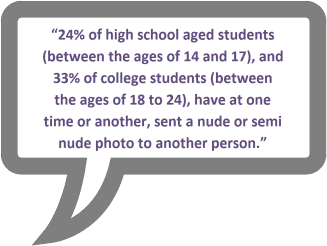
- Most obviously, the safest way to sext is to not sext at all.
- You are never obligated to send someone a nude photo or video or a sexual text to prove that you like or love them or to prove yourself. Expressing your sexuality or showing someone that you love them can be a scary thing, but there are many ways to do this safely and on your own terms. Take a look at our 'Let's Talk About Sex' area!
- Never send photos with your face in them or messages with personal details, so that if your message is passed on or spread, it will be harder to identify you.
- If your picture or message is sent to your boyfriend or girlfriend you can make sure that it is deleted straight away, although this is not at all fool proof, as copies and screen grabs of your pictures and messages can be taken and passed on by anyone without you or even the person you sent them to knowing.
What if we broke up? What if my friend saw it? What would my parents say if they saw it or found out? What would happen if a future employer saw it? It's just a bit of fun now but would it be worth it?
Getting help
Once a sext is stolen or shared, it can seem like your whole life has been taken over and you might feel alone, embarrassed and shocked. However the Child Exploitation and Online Protection centre can help. They can council you over the phone and give you advice that you want and need about sexual exploitation online or elsewhere. They will never judge you or put you in an uncomfortable situation and you can talk about it as much or as little as you want. They can put you in contact with people who can help remove the image or information about you online and take action against anyone who has broken the law or put you at risk or harm.
For more information on Zipit: Click here.
Child Line has launched its first app 'Zipit' to defuse the pressures of sending self-generated explicit images or videos. Labelled as 'sexting', the sharing of self-generated sexually explicit images or videos by mobile phone or online is now commonplace amongst young people to the point that it is considered mundane. The app has been developed in response to a Child Line survey of 13-18 year olds which revealed that 60% young people are frequently taking huge risks by making and sending sexual images of themselves. The free app offers witty images to send instead of explicit ones, advice for how to engage in safe chat, what to do if you feel threatened or if an image becomes public, and a direct link to call Child Line.
You can also visit us at Sexual Health D&G to seek confidential advice and support for any of these issues. We are a reporting centre for hate crime, domestic abuse, assault and sexual coercion. For a list of third party reporting centres visit here.
The NWG Network Charity launched a campaign called 'Say Something' in 2015.
They provide a free, 24 hour, anonymous phone and SMS text message helpline to allow young people in Scotland to give information and seek support. This can be about things they see online or through their phones or in their day to day lives. You can contact them on: 116000.
Healthy Respect, part of NHS Lothian, has developed a campaign which has a focus on sexting, online safety linked to sexual health and respectful relationships free from coercion and pressure. Materials include an educators guide, posters, leaflets, information on how technologies are used to bully or coerce, a list of useful resources, information and sources of support, and useful tips. New content has been developed for a website with sections on Staying safe online, Sexting, Pornography, Pressure to have sex, Cyber Sex and Bullying.
You can find out more here and download the resources
More information
http://www.healthyrespect.co.uk/StayingSafeOnline/Pages/Sexting.aspx
http://www.sexualhealthscotland.co.uk/sex-relationships/types-of-sex/sexting-and-online-sex
www.ceop.police.uk
www.childline.org.uk
